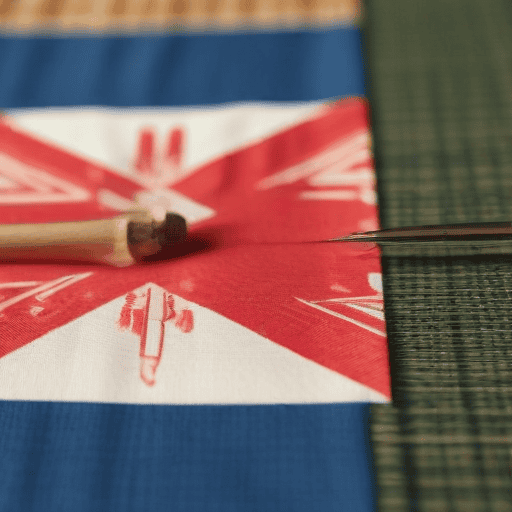In recent decades, Fiji has witnessed a significant rise in stroke cases, underscoring an urgent need for increased efforts to mitigate risks associated with strokes. Alarmingly, the youngest stroke patient recorded in Fiji was merely 12 years old. Factors such as work-life imbalances and poor dietary choices are seen as key contributors to this alarming trend.
Globally, one in five individuals will experience a stroke in their lifetime, and an overwhelming 81% of patients diagnosed with cardiovascular diseases will face a stroke eventually. This condition, known as a cerebrovascular accident, poses a substantial public health challenge in Fiji, where it is a leading cause of death and disability.
Fortunately, Traditional Chinese Medicine (TCM), particularly acupuncture, is emerging as a promising avenue for stroke rehabilitation. When a stroke occurs, it results from the blockage or rupture of blood vessels in the brain, leading to oxygen deprivation and potential long-term disabilities including paralysis and speech difficulties. Such challenges place heavy physical and emotional burdens on both patients and their families.
The rising incidence of strokes in Fiji is indicative of broader societal issues, including unhealthy lifestyles and heightened stress levels. In response, Vuda TCM Clinic is integrating traditional acupuncture practices with modern medical knowledge to support stroke survivors in reclaiming their health and independence.
Acupuncture, a practice with thousands of years of history, operates through various mechanisms. It enhances blood circulation, regulates the body’s vital energy (qi), and stimulates the nervous system, all contributing to improved recovery outcomes for stroke patients. Moreover, acupuncture is praised for its safety and minimal side effects, making it a reliable option during rehabilitation.
At Vuda Traditional Chinese Medicine Clinic, Dr. Pai has developed a distinctive “Three-Phase Integrated Acupuncture Therapy” specifically designed to cater to different stages of stroke recovery. This approach includes:
1. Acute Phase: Focusing on stimulating the brain and controlling the progression of the stroke.
2. Recovery Phase: Utilizing acupuncture on the scalp and neck to improve speech, swallowing, and motor functions.
3. Sequela Phase: Aiming to reduce long-term impairments and enhance the overall quality of life.
A remarkable success story from the clinic features a 40-year-old patient who, after two months of treatment, regained the ability to stand, swallow, and speak following right-side paralysis caused by a stroke. This case exemplifies acupuncture’s potential in transforming stroke recovery journeys.
While acupuncture provides a ray of hope in rehabilitation, prevention continues to be essential. Adopting a healthier lifestyle, which includes balanced nutrition, regular exercise, and effective stress management, can significantly lower stroke risks. Public health education in Fiji is paramount to help individuals understand the importance of prevention and the available early intervention options.
The Vuda Traditional Chinese Medicine Clinic encourages stroke patients to seek treatment promptly, especially within the critical first three months post-stroke, to enhance rehabilitation outcomes and reduce long-term consequences.
For those interested in consultations or appointments, further details can be found through the clinic’s contact information.
This article highlights an important public health issue and underscores the significance of both prevention and innovative treatment methods, offering hope to those affected by stroke. By promoting a healthier lifestyle and accessible medical interventions like acupuncture, Fiji can strive toward a future with reduced stroke incidences and improved quality of life for survivors.

Leave a comment